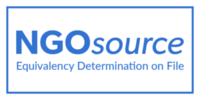About ICFR
Founded by the International Documentary Film Festival Amsterdam, International Film Festival Rotterdam and the European Film Academy, the International Coalition for Filmmakers at Risk’s mission is to advocate for and to act in solidarity with filmmakers at severe and acute risk. The Coalition acts in cases of persecution or threats to the personal safety of these filmmakers and will defend their right to continue their work, by mobilising the international film community.
“Risk” is defined in the most acute sense of the word: responding only to the most acute and critical cases in which there is an immediate threat to the personal safety of the filmmaker.
“Filmmakers” are defined as those who are directly involved in the creative process of a film: directors, producers, scriptwriters, actors and heads of department only.
VISION
In a world where civil society has shrunk and institutions are under pressure, individual filmmakers are increasingly struggling to make their voices heard. Film has the power of building bridges between cultures, nations and communities, and has the power of shedding light on history, of correcting narratives rather than manipulating them. In today’s world, injustice is reaching unprecedented levels and the creativity of filmmakers is one of the most influential tools through which contemporary societies find their way and defend their rights. Especially in countries where freedom is undermined, human rights are violated and censorship prevails, independent storytelling takes an even more crucial role and meaning. Stories about what freedom means, what heroism is, what is worth striving for and what really matters. And stories about what sacrifices must be made. What makes a society a society are the stories it tells about itself. That is why protecting creative freedom is of great importance. Critical, artistic and independent films promote democratic values and help build fairer societies. But as a result of various developments over the years, we are increasingly witnessing a growing number of filmmakers being threatened, arrested, imprisoned and even murdered to silence them. In these critical situations, the international film community must make a difference by showing solidarity in supporting campaigns for the freedom of these filmmakers or by putting pressure on authorities for their immediate release.
ACTIVITIES
To advocate for and to act in solidarity with filmmakers at risk, ICFR’s focus will revolve around four areas of activities:
a. Advocacy: campaigning for filmmakers at risk by mobilising the international film community or by seeking public support through means of diplomacy. In all its advocacy efforts, the ICFR only acts with informed consent of the filmmakers at risk or their representatives.
- Campaigning can involve publishing press releases and/or seeking media exposure in international newspapers and trade magazines; mobilizing international film festivals, academies, platforms, network organizations or prominent film professionals to support a case; or setting up petitions or advocacy actions on social media.
- Diplomacy efforts could include actively involving relevant Ministries of Foreign Affairs, local embassies and/or connecting to the Special UN Rapporteur on Freedom of Expression.
As each case is unique, the response of the ICFR strongly depends on the specific needs of the filmmaker in distress and the context of the threat. Depending on the case, the ICFR can sometimes take the lead in campaigning for a persecuted filmmaker or can support the advocacy efforts led by others. In some cases, public campaigning can be most effective, whereas in others a more silent diplomacy effort is required. Some cases demand a combination of these different efforts.
In addition, we have also experienced and learned when assessing cases brought before us that in some instances, opting for no intervention in any sort of way is preferrable for the safety of the filmmaker. In these situations, we opt for discrete monitoring. Indeed, there are cases in which external intervention may increase risks of the personal safety of the filmmaker or hinder their chances to be released when in detention, for instance (see Appendix All Cases).
b. Accessing the support system: connecting filmmakers in peril to international support networks active in the fields of human rights, culture and legal assistance.
c. Monitoring and observatory: On a mid-term perspective, the Coalition shall also develop competences for serving as an observatory for the situation of filmmakers at risk, taking into account the necessity of acting on a preventive level in the future.
International Coalition for Filmmakers at Risk
Vondelpark 3
1071 AA Amsterdam
Netherlands
Board:
- Chair: Orwa Nyrabia, Artistic Director of IDFA
- Secretary: Cees van ‘t Hullenaar, Managing Director of IDFA
- Vanja Kaludjercic, Artistic Director of IFFR
Board is unpaid (Bestuur is onbezoldigd)
ICFR is registered in the Netherlands as an ANBI (Algemeen Nut Beogende Instelling, a Public Benefit Organisation), RSIN/tax number: 861317014
ICFR is determined by NGOsource to be equivalent to a U.S. public charity or government instrumentality, particularly for the period 2023-2026 where ICFR is being financially supported by the U.S.-based Ford Foundation.

